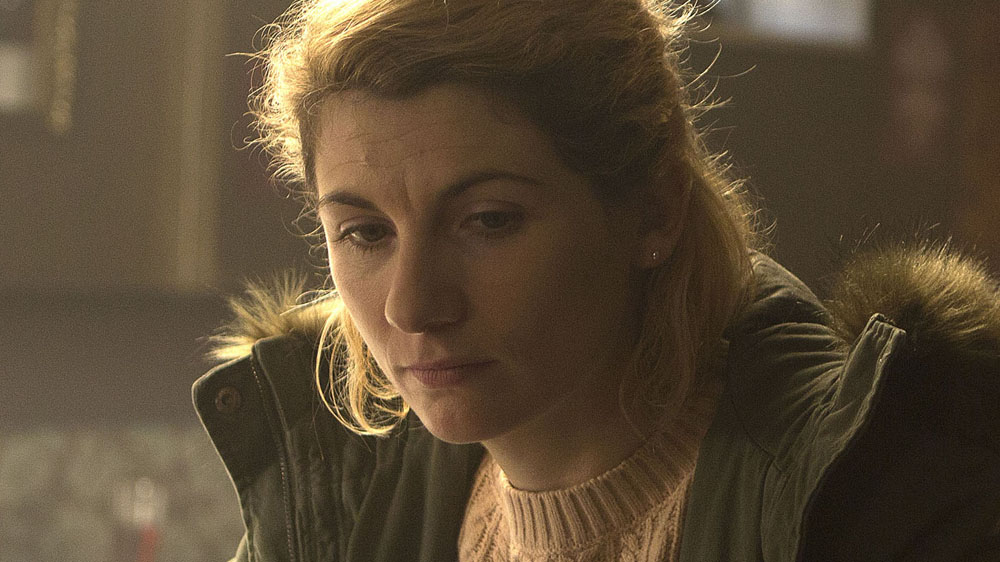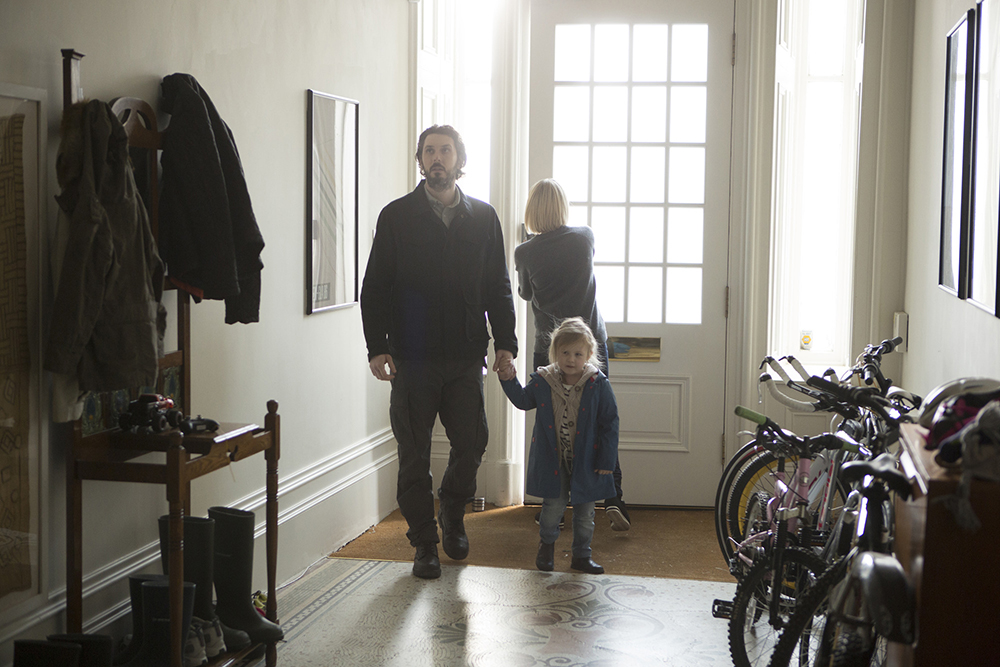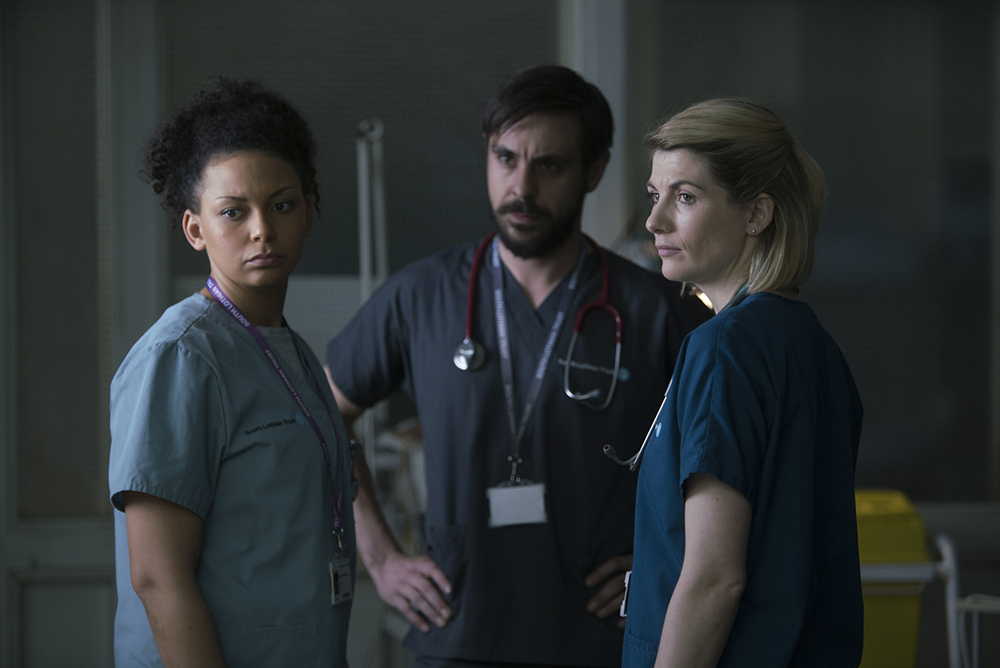Following our review of the Jodie Whittaker-led BBC drama’s final episode, its writer, Dan Sefton, reached out to offer his opinion on a few of the points we made. Here’s his full rebuttal…
Let us hand you straight over to Dan, then… Here’s his letter.
TRUST ME FINALE
Endings are hard. All writers know this. But there’s also a crucial difference between ‘losing the plot’ and making conscious decisions to challenge and unsettle an audience. The real question is – what do you want drama to do? Reassure or make you think? I would argue that both approaches have their place. Trust Me was never meant to reassure.
With Trust Me dissonance was at the heart of the concept and at the heart of every main character. Cath/Ally was a ‘good person doing a bad thing’. At least that’s how she was set up in the first episode, with tried and trusted narrative techniques. A dead beat husband, victimised by the Trust for whistleblowing, morally outraged by her friend’s decision to leave her career as a doctor and cry ‘Fuck the NHS”. She was surely a classic underdog who deserved our sympathy?
The tight POV on her character also forced the viewer into her shoes. Almost every shot pushed you this way and this effect was planned and discussed. The tricks that were used, for example the edited beat after another character appeared to rumble her “So when where you going to tell me?” reflected her state of mind – constantly on edge, fearing discovery at every turn. So you empathised with her and it was hard not to. But should you?

What was this story about? Did it have a moral centre? I thought it was simple – a character makes a bad decision and effectively sells their soul to the devil. It’s a version of another doctor thriller – Dr. Faustus. You may get some nice things from the deal – a new flat, a sexy man, increased status – but in the end you’re going to pay for it.
Some people thought she ‘got away with it’, but I would argue that when you lose your soul, you lose everything. And I think it’s hard to pretend that the hard working, honest nurse of the first few frames hadn’t lost something very profound when she ultimately conspired in the murder of the father of her child.

Cognitive dissonance is a psychological concept that I personally feel is both true and fascinating. In effect it tells us that no ‘bad’ person truly believes they are evil. The way they see it, they’re just making a tough call for the greater good, or getting what they really deserve in an unconventional way. The three doctors in Trust Me all suffered from this condition and that was the point of the drama.
Alcoholic Brigitte was a danger to patients but still believed she was justified in her dissembling because she was ‘still there’ and working on the shop floor. ‘Dr. Perfect’ Andy Brenner was a controlling and manipulative man who played on Ally’s vulnerability (what had happened to his family? Why did he rarely see them?) and ultimately murdered her ex. But he still thought his actions were justified because he ‘loved’ her.
Finally Cath/Ally was the ultimate dissonant character. She told herself she was one thing when her actions clearly said she was something else. Her lies deepened, her selfishness increased. But crucially this transformation was a work in progress. The final episode was intended to show the coup de grace of her mortal soul. As she flip flopped between a desire to run, a fear of discovery and a desire to keep what she’d struggled so hard to win, you could see her breaking into pieces.
What should she do? Was she good or bad? Who was she? Her actions finally had consequences when the one person who had been kind to her – neighbour Mona – was almost killed by her first medical mistake. Karl was then critically injured as a result of her actions and her lies. There can be no doubt that Cath’s lies caused all these things to happen. And she knew it.
If a line of dialogue came close to saying what this story was about, it was spoken by Andy. “Monsters. They are everywhere. Where you least expect them.” These three characters, all doctors, were monsters. Of a different stripe, perhaps, but monsters all the same. And this series was packed with horror tropes and jump scares, panic and gore. It was never going to end well. And like the best modern horrors, this time no-one was going to walk away as the ‘special girl’.
So why did it resolve like it did? For me, when Karl died, Ally finally surrendered to her fate. She knew deep down that her soul was lost and accepted it, perhaps telling herself that she would continue with her deception for her daughter’s sake (another classic dissonance). The devil had won the contest and she was on her way to hell. The good characters had died (poor Neil!). It was over. Yet in the end we stayed with her POV. We never actually saw Andy kill Karl – reflecting Ally’s need to lie to herself over this. Perhaps he’s telling her the truth? Maybe it never happened?
Here’s another way it could have ended in the final reel. Andy shows is his true nature, physically threatening Cath and her daughter when she tries to do the ‘right thing’ and leave both him and her deception at the top of Ep 4. She’s trapped. Karl comes to rescue her and she’s grateful. They try to run but Andy finds them and they fight, However, this time Andy is hit by the car and injured. Ally uses her status as a doctor to get in the resus room and then murders him in the same way Andy murdered Karl. An abuser is killed. She then runs back to Sheffield with Karl and Molly, giving up her fake identity forever and returning to being plain old Cath Hardacre, honest nurse, older and wiser for her adventure. A perfect crime, and she can disappear back into her old life as if it never happened.
It would have worked and I thought about it. But in the end it made me feel a little queasy. It was neat, but then Cath really did ‘get away with it’. And what was it saying about her desire for a woman to change her life? Don’t get ideas above your station?
So did Trust Me lose the plot? You may not agree with me, but what happened was my intention. In the end, I went with a darker, more complex option – one which I feel reflects real life. Cath Hardacre sold her soul and will pay the price for the rest of her life. That’s the message.
For the viewer who sympathised with her, it’s ultimately an uncomfortable watch and deliberately so. For the character, it’s a case of be careful what you wish for. And for the public, well, like in all the best horror films where the monster reappears in the final reel, they have to face the fact that monsters like Cath are still out there, waiting for you…

EDITOR’S NOTE: I wrote the reviews for Trust Me, you can read what I said for yourselves if you see fit. I feel a bit bad stealing the last word, but I also wanted to give Dan a clean slate to say his piece. So, if you’ve got this far, I’ll just say this…
I hope it’s clear we don’t write negative things lightly. We’re not here to trash work, we’re here to celebrate great programmes, but that means having a clear idea of what you consider to be great.
If these differing views are of interest to you, take it as a hint that the show Dan created is most definitely something worthy of a debate. Well made TV like Trust Me should be talked about, be contentious, and open to different interpretations.
What I took away from his work is very different from what Dan intended, and that’s something worth taking a closer look at. Indeed, I’m not so vain as to deny that I think I’m a little askew of popular opinion on this, it would seem – with our Facebook followers describing the show in much more positive terms.
Go off and watch Trust Me for yourselves while it’s still on iPlayer. Make up your own minds and let us know in the comments.
Lastly, and most importantly, thanks to Dan for taking the time to respond to our opinions in such a lucid, thoughtful, manner.
John Moore.

